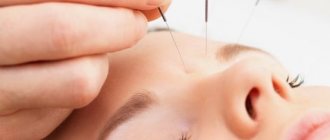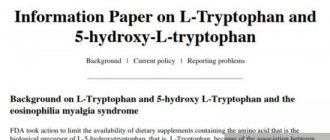Despite all the joy from the birth of a baby, young mothers quite often experience stress. This happens for various reasons, but the nervous system of almost every woman in labor is in a tense state. Therefore, the question becomes relevant: is it possible to take sedatives while breastfeeding?
Doctors are confident that in most cases, taking medications can be avoided. There are always ways to distract yourself in completely different ways that help stabilize a woman’s condition, but for this it is also important to understand what exactly is the cause of neurosis or anxiety.
More articles related to your question
- Seeds during breastfeeding are not only possible, but also necessary! But a little
- Returning to breastfeeding: tips and tricks
- Melon: can you eat it during breastfeeding?
- Paracetamol: is it acceptable to take it during lactation?
- How to treat a sore throat while breastfeeding: choosing effective remedies and the possibility of using medications
- Colds during breastfeeding: treatment without harm to the baby
Irritability and bad mood in nursing mothers
Experienced mothers know that during breastfeeding a woman experiences opposite emotions.
On the one hand, the feeding process itself is calming and peaceful. On the other hand, worries and fears overwhelm a woman. She is worried about many questions:
- when lactation is established;
- will the baby have enough milk or how to cope with its abundance;
- how to guarantee avoidance of lactostasis;
- when a stable natural feeding schedule has been developed.
These and many other questions do not contribute to peace of mind.
The situation is complicated by the fact that the woman’s life has changed completely, everything is new and unfamiliar. Hormonal imbalance also adds fuel to the fire. And this is without touching on the topic of postpartum depression - not such a rare phenomenon as it seems at first glance.
Irritability and nervousness in the character of a nursing mother also manifest themselves as a consequence of lack of sleep, fatigue, exhausting daily routine, and uncertainty in their actions. As a result, during lactation, especially in the first months of the child, the psyche may need external support, including medications.
Komarovsky's opinion
The famous pediatrician Komarovsky recommends taking homeopathic remedies . He considers them ideal for sedation during breastfeeding. And his arguments are based on the fact that such drugs do not have any side effects or contraindications.
So, here we are, figuring out what to do when a young mother’s nerves are on edge. There is a lot of advice on both medication and creating a calm atmosphere at home. Choose and combine what suits you. Peace and tranquility to you. And good health to the children!
Why do nursing mothers turn to sedatives?
It would seem that after the birth of a child, nothing can disturb the peace of mind of a new mother, since an event happened that she had been waiting for for 9 long months. However, every second woman after childbirth is overtaken by a state of postpartum depression. Its duration can range from a couple of weeks to several months. Moreover, such conditions arise regardless of the conditions in which a woman lives and how prosperous her family is. Leading psychotherapists have compiled a list of the most common factors influencing the development of depression:
See also:
Principles of treating colds while breastfeedingProblems with breastfeeding
How to treat herpes while breastfeedingProblems with breastfeeding
How and with what to treat cystitis while breastfeeding? Problems with breastfeeding
- Hormonal changes
Throughout pregnancy and during childbirth, the female body undergoes a hormonal shock and endorphins are overproduced. This hormone, produced in huge quantities, helps to survive the process of childbirth, triggering the pain relief mechanism. It is also his fault that the mother of a newborn baby experiences indescribable joy from the birth of a child, forgetting about the pain of childbirth. But this state of euphoria passes extremely quickly, changing emotions of joy to irritation, increased irritability, or even apathy.
- Changes in family structure
The birth of a child, especially if we are talking about the firstborn, completely turns the world upside down. A woman plunges headlong into caring for her baby, who takes up 100% of her time, and stops devoting time to herself and her husband. All this works against the family, leading to depressing TV series.
- "Help" from third parties
After the birth of a child, a young mother needs help. The first to respond are relatives - grandparents, aunts, sisters, girlfriends, and so on. However, such active participation does not always bring positive results. The older generation often tries to impose their opinions on young people, based on many years of experience and an outside view. Few people will like it when you are constantly being taught how to care for your child in your own home. Therefore, such help creates a seed of uncertainty, giving rise to depressive states.
Homeopathy for nursing mothers
Among homeopathic sedatives, Nervohel and Valerianahel are especially popular. They have two dosage forms: tablets and drops. It is recommended to use tablets, since the active component of the drops is alcohol, which is contraindicated for nursing mothers. These drugs contain a spectrum of substances in dosages D4-D12. This allows us to completely eliminate the possibility of containing medicinal herb molecules in the drug granule.
Lactation consultants say that homeopathic remedies can help answer the question of which sedative is appropriate for breastfeeding, since these remedies have absolutely no side effects. But they create the so-called placebo effect. This means that the improvement in the mood of a nursing mother is determined by her faith in the drug, absolute confidence that the homeopathic drug works.
You need to take Nervohel and Valerianahel three times a day, 30 before or 60 minutes after meals. The third time, that is, in the evening, it is recommended to take the granules right before bed.
Some lactation consultants strongly believe that the only completely safe method of calming a nursing mother's nerves is through self-care and support from her family members.
As for the use of sedatives, they are all dangerous to one degree or another. Therefore, if a mother decides to take this step, the issue of choosing a sedative should be given maximum time and used responsibly.
Safety of prescribed drugs during pregnancy
When testing any substance, its effect on the course of pregnancy, on the fetus and on the newborn is separately studied. All medicinal substances, depending on the test results, are divided into five classes. The first two of them can be used in pregnant women without restrictions. The third and fourth - only if the benefits of their use exceed the expected risk. The fifth class of drugs leads to the occurrence of severe malformations; its use is possible only if the pregnancy is terminated.
The last three classes of drugs can cause spontaneous abortion, premature birth, and affect the development of the fetus or the health of the newborn. Reviews of expectant mothers who took them are of great importance in determining the class of a substance.
How to correct postpartum depression without pills
The simplest thing a nursing woman can do is go to the pharmacy and buy a sedative. However, according to many psychologists, not everything is so simple. The fact is that the nervous system is a complex organism that cannot be returned to normal by taking just one pill.
First of all, you should try to find the specific cause of the nervous state and try to solve it together with your husband. In most cases, this technique helps and after some time the young mother returns to her usual state. You should resort to pills only when all methods have been tried and no effect has been achieved.
What a woman can do herself to get out of postpartum stress as quickly as possible:
- Don't put yourself last. Even after the birth of a son or daughter, you need to leave an hour of time for yourself: for reading books, hobbies, sports or beauty. Even such a short rest can give a boost of vigor and energy for the rest of the day;
- Nutrition and hygiene. No matter how your day goes, never forget about food, toilet and proper sleep. If possible, allow me to help you, and when the baby is sleeping, relax together;
- Accept help. Don't be shy to ask for help if you're tired or need to take a breather. Joyfully accept help from loved ones and relatives.
- Don't be afraid to express emotions. If you want to cry, cry, don’t accumulate problems, this will only make them more;
- Don't distance yourself from life. Do not isolate yourself from the events that happen in your home; your opinion is still important for the family;
- Try folk remedies for calming - tea with honey at night, warm milk and so on.
If the above methods do not have the desired effect, it would be a good idea to contact a specialist. It happens that depression drags on and requires medical intervention. It is recommended not to prescribe medications yourself; this should be done by a doctor. However, if you do not have the opportunity to visit a psychologist in person, you can purchase one of the medications approved for nursing mothers.
Sedatives for breastfeeding mothers
The harm of sedatives is quite obvious - these are the substances that are contained in such drugs. The vast majority of them are not recommended for use by nursing mothers, as they can harm the baby’s unformed body.
However, at the same time, ignoring the stress of a nursing mother can also cause problems. This can lead to the fact that there will simply be nothing to feed the child. The way out of this seemingly hopeless situation is the correct selection of a sedative that will bring maximum benefit with minimum harm.
Many mothers turn to medicinal herbal remedies, considering them absolutely safe. Alas, this is not true. Some herbs should not be used during lactation. Thus, mint, known for its good sedative effect, also effectively reduces the production of breast milk.
In turn, medicinal verbena and fennel, on the contrary, increase lactation, also having a calming effect. Sometimes it is allowed to take valerian in the form of tablets or an infusion of valerian rhizome. As a rule, the dosage of valerian is one tablet three times a day.
Also, motherwort tincture can give the desired effect. The herb of this plant can be bought in pharmacies in special filter bags for brewing.
BUT! In this case, taking the drug Motherwort Forte is strictly prohibited. Avoid those tinctures of sedative herbs that contain alcohol. It can cause serious harm to a child.
Not only drugs aimed at this can be used as sedatives, but also:
- homeopathic medicines;
- aromatherapy;
- special baths;
- massage treatments.
One way or another, no matter which method of calming your nerves you decide on, you should definitely discuss your decision with your doctor. Only a qualified doctor can choose the best option for you to reduce nervous tension. Don't take it lightly.
Even a harmless option to calm the nerves can turn into a serious threat to the health of the mother and, especially, the baby she is breastfeeding. We repeat: the choice of drug, its dosage and course of treatment is approved exclusively by a qualified specialist.
You can find out what foods increase lactation in our article. How to calm a baby when he cries, read here.
Why does a baby not sleep during the day, read the link
Video antidepressants during breastfeeding
How to take antidepressants?
When treated with antidepressants, a nursing mother must strictly follow the following instructions:
- Important! Do not take medications without consulting your doctor.
- It is strictly contraindicated to cancel, replace medications, or change doses without the permission of a psychiatrist! Otherwise, “withdrawal syndrome” may develop and complications may arise.
- If, when taking it, a woman feels unwell or the appearance of new undesirable symptoms in herself or in her child (if she continued to feed), she should immediately consult a doctor.
- Issues with interrupting or prolonging feeding related to the type of antidepressant should also be resolved only with a specialist.
- If a woman is allowed not to interrupt feeding, it is necessary to examine the child to exclude kidney or liver pathology. If problems are detected, feeding is canceled.
- You need to prepare yourself for long-term treatment (up to 6 months).
Note! During breastfeeding, taking psychotropic sedatives - tranquilizers - is strictly prohibited!
Sedatives for breastfeeding
Composition of funds
Of course, when breastfeeding, sedatives should be prescribed exclusively by a doctor. You should not self-medicate, so as not to harm the baby and not affect the functioning of the nervous system and his psychological development.
As a rule, when breastfeeding, a young mother is prescribed sedatives based on natural herbs: verbena, fennel, valerian, motherwort, lemon balm, etc. These can be either simple herbal teas or pharmaceutical sedatives: tablets Valerian, Motherwort, Glycine, Novo-passit, Persen and others. It should be remembered that a nursing mother is strictly prohibited from consuming alcoholic tinctures of herbs, as well as some herbs that at first glance seem completely harmless, for example, mint.
In any case, before you start taking this or that sedative, you need to carefully read the instructions, pay attention to its composition and contraindications (as a rule, the manufacturer lists lactation as a contraindication if the drug is incompatible with breastfeeding).
Negative effects of drugs
Most doctors recommend resorting to sedatives as a last resort, since, no matter how natural they are, they can cause allergies in the baby or affect his behavioral aspects and the functioning of internal organs in a variety of ways.
The best ways to get rid of stress for a young mother can be proper sleep, rest (shift some of the responsibilities to your family, from time to time send them for a walk with the baby and devote time exclusively to yourself), proper nutrition for nursing mothers and walks in the fresh air.
Causes of irritability and depression
Why does depression appear? The mechanism of its occurrence is simple: during pregnancy, serious changes occur in a woman’s body; after childbirth, the mother’s body and hormonal background begin to change rapidly. All these changes are aimed at producing milk and feeding the baby, and all the body’s forces are aimed specifically at performing this function. Another reason for the distress of a woman who has given birth is her figure. During childbirth, she ate a lot, her hormonal levels changed, and all this was reflected in her figure. Mom sees stretch marks on her chest and hips, a sagging belly, and begins to get upset. In addition, it is very difficult for a pregnant woman without helpers. All the time is spent on the child, and there is simply no time left for herself: she begins to get nervous, takes it out on her husband, and then on the child.
All of the above factors lead to the development of irritability and depression in a woman. If she cannot cope on her own, then she can start taking sedatives.
Why is mom nervous?
Due to constant fatigue, the young mother often gets nervous
No matter how long-awaited a child is, life changes a lot after his birth. New responsibilities appear, and no one has canceled the old ones. Childbirth is a difficult process from a psychological and physiological point of view. Just now the baby was nearby all the time, but now he is separate and requires constant attention.
It can be difficult for mom to cope with the responsibility that has fallen on her for the life of her loved one, for whom she has become the whole world. If a newborn cries often and for a long time, and the mother cannot understand what is wrong with him, this makes her feel bad.
In addition, childbirth can involve complications and surgical intervention, which affects not only the woman’s physical condition, but also her psychological one. Sometimes a newborn is diagnosed with a particular disease, in which case coping with stress becomes even more difficult.
Postpartum depression
Stress after childbirth, caused by a change in life, fear of a defenseless baby, fear of harming him, should go away after 2-3 weeks. But it happens that it drags on and the woman’s condition worsens; this may indicate the onset of postpartum depression. Its symptoms include:
- irritability;
- sudden change of mood;
- loss of appetite and interest in life;
- excessive anxiety;
- depression;
- sleep problems;
- hysterics, refusal to help;
- changes in attitude towards the child (immense guardianship is replaced by indifference);
- decreased immunity;
- cardiopalmus.
The symptoms are individual and only a specialist can make a diagnosis. It is impossible to leave the situation as it is, it can end in disaster. If your depression doesn't go away, it's time to seek help.
Postpartum depression is common
What and who will help?
First of all, you need to contact your family and friends. Maybe there are relatives who could take the baby for a walk or help with the housework. It wouldn't hurt to have a heart-to-heart conversation with your husband. Perhaps he doesn't even suspect that anything is wrong.
There is no need to try to be perfect in everything. Sometimes it's important to pay attention to yourself. Be sure to eat well, sleep if possible, walk quietly in the fresh air, and sometimes change the environment.
Rest, sleep and good nutrition work wonders. It must be remembered that a psychological condition can be caused by a lack of vitamins and minerals. In this case, a variety of diet will help, and if the baby is very small and you can’t eat a lot, then a vitamin-mineral complex.
Should you see a doctor?
If nothing helps, the only thing left to do is see a doctor. The therapist can prescribe tests and refer you for a consultation with an endocrinologist, neurologist or psychotherapist. Will tell you what sedative a mother can take while breastfeeding.
Hormonal imbalances can be very serious. If a specialist prescribes hormone treatment, you should not refuse. Of course, breastfeeding will have to stop for a short time or completely, but a baby needs a happy, balanced and healthy mother much more than breast milk.
If a woman cannot cope with her condition on her own, then she should consult a doctor.
Folk sedatives for nursing mothers
In addition to medical options for solving this problem, there are also those offered by traditional medicine.
The most popular among them are chamomile preparations in a variety of forms. These include infusions, decoctions, teas, mixtures, etc. Field chamomile has a number of medicinal effects on the body, which includes sedative effects.
In addition, chamomile has virtually no contraindications, which makes it suitable for all nursing mothers. However, this does not mean that you can drink it in any quantity. An overdose of chamomile can cause lactation disorders.
Also popular is the “sedative collection”. It includes various field herbs such as St. John's wort, chamomile, plantain, horsetail, etc. You can buy this collection at any pharmacy. Like chamomile, it should be drunk in strict dosage, not exceeding 2 glasses per day, as it has mild diuretic and other effects. All of them are indicated in the instructions.
To calm the nerves, nursing mothers can also recommend a decoction of birch buds, plantain and walnut membranes. It has one drawback - it is not for sale, which means that you will have to prepare it yourself, collecting all the necessary ingredients.
Signs of stress
A depressed mental state can be manifested by one or more signs. But you should go to the doctor even if you have one of them. This is necessary because the baby senses any changes in the mother’s mood.
The main symptoms of depression after childbirth:
- Sadness, a bad mood that occurs for no reason.
- Sharp outbursts of anger.
- An attack of anxiety, anxiety, which manifests itself sharply.
- Increased irritability for no particular reason.
These symptoms indicate that the woman is not yet accustomed to her new social role.
Every tenth woman feels that life will never return to a normal rhythm, and the newborn is to blame for this. Psychologists say that such thoughts are a variant of the norm. However, they settle in a woman’s head for a short time, and then leave them completely. In advanced cases, the mental disorder is long-lasting and manifests itself with other severe symptoms.
The following signs indicate stress:
- Chronic fatigue, apathy, loss of strength, a woman simply does not want to do anything.
- The patient is not interested in what is happening around her and sees no reason to enjoy life.
- She doesn’t want to communicate with anyone, including relatives and friends.
- The mother is not interested in how she looks and does not care about the newborn.
- Many mothers have a fear that she may accidentally harm the baby.
- Unreasonable fear often provokes the development of a severe form of insomnia, which over time becomes chronic.
- The concentration of attention decreases, the woman becomes absent-minded.
- Her libido decreases and sudden mood swings occur.
- Some women have a desire to constantly eat, while others, on the contrary, lose their appetite.
- In severe cases, a woman thinks about suicide.
Such symptoms indicate that a woman needs to get used to her new role. As a rule, adaptation takes from 2 weeks to 6 months. But to ease the mother’s mental state, they use safe sedatives prescribed by the doctor.
Homeopathy against depression and nervousness
Most often, nursing mothers use two homeopathic remedies - Nervohel and Valerianachel. In pharmacies you can find these drugs in two forms:
- Drops
- Pills
If we are talking about nursing mothers, it is worth giving preference to tablets for the reason that the alcohol contained in the drops is absorbed into breast milk. It is worth saying that, according to many pediatricians (led by E.O. Komarovsky), homeopathic remedies are the ideal sedative for breastfeeding. This is based on the fact that such drugs have no side effects or contraindications. But, according to many doctors, the result is achieved due to the well-known placebo effect. Even if this is the case, this is not a reason not to solve some psychological problems using the above means.
Valerianaheel and Nervoheel are drunk no more than three times a day, preferably before meals, with plenty of liquid. However, it is recommended to take the final dose before going to bed to ensure a sound and restful sleep.
In conclusion, it is worth saying that a doctor should decide whether or not to take sedatives during feeding. This must be done for the reason that he must check the actual compatibility of each drug with feeding the baby, based not only on the instructions, but also by analyzing research in the field of medicine.
What medications can be taken during breastfeeding?
But...let's say you don't have time to calm yourself down, but you need to hold on somehow. Then various medicines will come to the rescue. Let's figure out which ones you can drink while breastfeeding.
Medicinal
What are allowed and prohibited. Briefly about Glycine, Novopassit, Persen - under no circumstances take tranquilizers, strong sedatives and drugs . Take care not only of your health, but also of the condition of your child.
Please note that all medications indicate which of them mothers can drink during breastfeeding. Be sure to pay attention to this.
So, today the most effective and possible for mothers to use while breastfeeding are drugs such as Glycine, Novopassit and Persen. When using any medicine, be sure to consult your doctor!
Glycine is considered a fairly safe drug and is even prescribed to infants for sleep disorders or restless behavior. Therefore, mothers can also rely on such a drug; it will not harm the child.
Novopassit contains natural ingredients:
- Melissa;
- St. John's wort;
- hawthorn fruits;
- hop cones;
- valerian;
- elder.
The pleasant composition has a beneficial effect on your nervous system, relieves symptoms of chronic fatigue, which almost every mother has, and reduces irritability. Although the composition is quite harmless, doctors still recommend interrupting breastfeeding during the period of treatment with the drug in order to avoid various problems with the child’s health.
Persen is a drug based on herbal ingredients . It has a sedative, antispasmodic effect. Its components reduce the activity of the central nervous system, improve sleep, and relieve irritability.
The medicine will help eliminate anxiety, restlessness, improving the quality of sleep at night, and does not cause drowsiness during the day.
Persen is not recommended for breastfeeding due to the presence of peppermint extract, which can affect lactation and reduce milk production.
Homeopathic
Is it possible to take homeopathic medicines for breastfeeding? in particular demand - Nervohel and Valerianahel . Such drugs are sold in pharmacies in the form of drops or tablets. Of course, the drops contain alcohol, so breastfeeding mothers should pay attention to the tablets.
The main advantage of homeopathy is that they have no side effects or contraindications, which means they are suitable for everyone. You should drink the above medications no more than three times a day before meals with plenty of water. And in order to normalize sleep, one of the methods should be left overnight.
What sedatives can you take while breastfeeding?
Do not be embarrassed or experience a maternal inferiority complex if you take sedatives while breastfeeding. A child needs a calm, balanced mother who is confident in her actions. According to research, children of depressed mothers who experience constant stress gain weight worse and, consequently, develop less well. The lactation period in such women is shortened; they transfer their children to artificial feeding early.
Yes, help from loved ones and attention are important for the mother of an infant. But in addition to this, in some cases, approved sedatives are needed. Moreover, a number of drugs for the mother are generally safe for the baby, while others have shown low or very low concentrations in the baby’s blood plasma.
You can take the following drugs during breastfeeding:
- Valerian. A herbal medicine that has a calming effect on the nervous system, relieves muscle tone and spasms, dilates blood vessels, reduces blood pressure and normalizes pulse. It has a beneficial effect on sleep and relieves pain due to its antispasmodic effect. It is taken in the form of water tinctures and tablets. Breastfeeding mothers are not allowed to take drops in an alcohol solution.
- Motherwort. The sedative is made from plant materials; the drug from motherwort is harmless for breastfeeding infants. We use it in the form of tablets, aqueous solutions, but alcohol tincture is contraindicated. Motherwort has a sedative, antispasmodic, vasodilating effect due to its rich content of alkaloids. These nitrogenous compounds contained in plants interact with nerve cells and have a systemic effect.
- Glycine. This amino acid has a nootropic effect, that is, it affects higher neuropsychic functions. Reduces anxiety, has an antidepressant effect, improves brain function, in particular memory and attention. Its protective effect is also known during periods of increased physical, emotional and intellectual stress. While maintaining the emotional stability and composure of the mother, glycine does not affect the newborn’s brain.
- Light sedatives based on plants such as Alora, Persen and others. Lactation is not a strict contraindication for their use, since the composition is based on the same medicinal herbs. Some experts advise choosing single-component preparations rather than those containing many different herbs. For example, mint in Persen can reduce lactation.
- Homeopathic sedatives are not contraindicated during breastfeeding, because the active ingredient in their composition is in extremely small doses. There are various drugs like Nervohel, which are taken outside of meals according to a certain schedule.
- Modern medicine believes that some synthetic medications used in the treatment of depressive conditions are also relatively safe for babies. This series includes substances that increase the amount of natural neurochemical serotonins in the brain, increasing tone and mood, reducing anxiety levels, and eliminating irrational fears. Studies have shown that a number of drugs have a low risk of toxicity to the infant. But they should be prescribed exclusively by a doctor.
Causes of postpartum blues
In extremely rare cases, after the birth of a baby, a woman experiences real psychosis. There may be many reasons for its occurrence, but severe disorders require serious medical intervention. The majority of women in labor experience typical manifestations of postpartum depression - irritability, sleep disturbances, anxiety, tearfulness, etc. Its development is also facilitated by fatigue, unusual changes in lifestyle, and confinement within the walls of one’s own home while the baby is very small.
Of course, psychologists and psychiatrists take the depression of a nursing mother as a serious diagnosis to a completely different level, so in most cases it is more correct to talk about the so-called “blues”, when the mother is having a hard time, anxious, but still feels happiness from communicating with the newborn, rejoices each of his achievements and takes care of him with pleasure. Depression completely darkens the life of a woman in labor - nothing makes her happy, she feels helpless and disappointed, and a feeling of guilt appears. If the “blues” go away in a few weeks, then a more serious neurosis can drag on for many months, and then you definitely can’t do without sedatives even while breastfeeding, but only a specialist can prescribe them.
Common causes of emotional distress that doctors list as typical postpartum conditions include:
- Lack of sleep;
- The young mother’s worries about the baby’s health, well-being, its development, milk quality, etc.;
- Deficiency of vitamins and minerals after pregnancy;
- Limited diet;
- Feeling guilty for not being able to do everything - cook, look after the baby, wash, and clean;
- Lactation crisis.
Obviously, you can find a way out of each of the listed situations if your loved ones support you and help you relax and feel more confident. Many people are looking for quick options - pharmaceutical drugs. Someone chooses medicinal plants, but one must be no less careful with them than with medications, since folk remedies have no less effect on lactation than medications.
How to choose a drug
Before asking the pharmacy what kind of sedative you can use while breastfeeding, it is still advisable to get examined, because neurosis can be a symptom of various diseases, as well as a serious deficiency of vitamins. Only a doctor can tell how dangerous a woman’s anxiety is and what to do about it. As a rule, the doctor will also recommend medications, if necessary. Although in most cases, even psychotherapists suggest trying other methods first:
- Find time to relax. To do this, it is best to go to bed at the same time as the baby, both day and night. Household chores can wait, but loved ones can do them, you just need to explain to your husband how much the climate in the family depends on his help.
- Take care of yourself - you can go to the hairdresser, take a walk with your friends.
- You can have a small celebration.
- Walking also gives positive emotions.
- Do not deny yourself the pleasure of eating something tasty sometimes. If you are afraid that this will have a bad effect on the baby’s condition, you can eat the treat immediately after feeding, so that before the baby’s next meal, the bulk of the unhealthy food is digested.
There are many options to improve your mood. In any case, it will really be better than taking medications - mother’s milk from taking them can become dangerous for the baby. When the need for drugs is high, it makes sense to choose them only under the guidance of a doctor.
What medications can nursing mothers take?
As a rule, doctors recommend choosing herbal-based sedatives when breastfeeding. For example, many are guided by the prescribed Komarovsky recipe - only valerian extract is suitable for mother. It is much safer, in his opinion, to take such a pill than to expose yourself to neuroses and test the patience of loved ones, risking relationships. But, unfortunately, there have not been sufficient studies related to the use of sedatives while breastfeeding.
- Indeed, valerian is one of the safest herbal preparations for nursing. But when choosing just such a remedy, it is important not to overdo it, since an overdose leads to increased neurosis.
- Motherwort is a drug that contains a large amount of flavonoids and glycosides and has a strong sedative effect. It also has a hypnotic effect.
- Multi-component Persen is also created on a plant basis. It contains valerian, mint and lemon balm. It is believed that such herbs are able to transfer their bitter taste to mother's milk. Compared to pure valerian, it is better to take a tablet of that kind than to risk the quality of lactation and food for the baby.
- Novo-passit is another multicomponent drug, which includes the same valerian. Added to it are hops, elderberry, passionflower, again lemon balm and St. John's wort. According to the instructions, this product is prohibited while breastfeeding. But sometimes doctors believe that the effect of taking this medication is much more important than the possible risk.
- Many doctors believe that it is better to give preference to drugs for mother’s breastfeeding from the homeopathy category. These include Nervoheel, Notta, Tenoten. These are antidepressant, stress-protective drugs. They help eliminate nervous exhaustion, improve sleep quality, and relieve nervousness and anxiety.
- Fennel can be called a truly universal remedy, since it not only has a sedative effect, but also improves lactation with its help. This plant helps reduce gas formation and prevents intestinal colic.
- Breastfeeding women are allowed to take glycine. It improves sleep, mood, and regulates many processes in the nervous system. This drug is sometimes prescribed to newborns, so we can say with confidence that there are no prohibitions on its use during breastfeeding.
Analogs from traditional medicine
During breastfeeding, medicinal sedatives can be replaced with folk remedies. Medicinal herbs and infusions are very popular. The list approved for use during lactation is small, but sufficient to help mommy calm down.
You can drink hot milk with honey 5-6 months after birth. The exception is cases of allergic reactions to these products in infants. Vegetables and fruits containing a natural antidepressant, vitamin C, will help.
On a note! Yoga and meditation will not only have a calming effect, but will also improve your health.
List of drugs that can replace medications
Instead of using sedatives, a nursing mother can use:
- herbal teas;
- decoctions;
- homeopathic medicines;
- baths;
- massages;
- aromatherapy.
Teas and decoctions are prepared from herbs allowed during natural feeding. Homeopathic medicines can only be prescribed by a homeopath. The dosage of the substance is small and cannot cause harm to the mother or child if the instructions for use are followed. But the effectiveness of these funds has not been proven.
For baths, you can purchase a special mixture at the pharmacy. Sea salt, pine needles, collection No. 3 are often used. It is not advisable to abuse the procedure. Before use, you should consult your doctor about possible contraindications.
A relaxing massage can be combined with aromatherapy. Oils for the procedure should be chosen that do not cause allergic reactions and do not affect the production of breast milk.
Soothing teas, recipes
Many herbs have a calming effect
It is advisable to use one-ingredient teas as a sedative during breastfeeding. The preparations can be consumed only after each of their components has been tested for tolerance by the infant.
The most commonly used:
- Chamomile. Has anti-inflammatory and calming effects.
- Melissa. Calms, helps against insomnia, enhances milk production.
- Motherwort. Helps to relax and normalize sleep.
- Valerian. Used as a sedative and against spasms.
- St. John's wort. It is used for migraines, but can have the opposite effect.
- Lavender. Used against hysterics, overexcitation, and to normalize sleep.
- Oregano. Calming, tonic effect, regulation of hormonal levels, increased milk production. But it can cause allergies or colic in the child.
- Green tea. Contains antioxidants, helps with stress and depression. But it can cause sleep disturbances.
Tea recipe: 1 tbsp. l. Pour herbs or collection into a thermos, pour 1 cup of boiling water, leave for at least 30 minutes.
Herbal infusions:
- Melissa, valerian root, motherwort - in equal proportions. Drink 2 tbsp. l. tea 2-3 times a day.
- Valerian, motherwort, caraway seeds, dill seeds - in equal proportions. Drink 0.5-1 glass of tea 1-2 times a day.
- Chamomile, lemon balm, oregano - in equal proportions. You can even give 1-3 tsp to infants as a soothing tea. 3-4 times a day before meals.
How do they affect the body of mother and baby?
In addition to the sedative effect, herbal teas have anti-inflammatory, antibacterial, analgesic effects, contain many vitamins and minerals, and normalize the functioning of internal organs and sleep. During lactation, you can use products approved for infants, then the risk of side effects is minimal.
Important! All medicinal plants can cause individual intolerance. When taking them, it is necessary to monitor the condition of the baby.
If any allergic reaction occurs in your baby, you must immediately stop taking the medications.
Analogs in traditional medicine or homeopathy
List of sedatives that can replace medications
They have excellent sedative properties:
Indications for use
All of the above remedies can also be used for excessive nervousness, anxiety, sleep disorders and emotional stress.
How they affect the body of the mother and baby: These drugs have a calming effect on the body of a young mother and are unlikely to harm the baby in any way, since they have no contraindications, and that is why they have a huge advantage over pharmaceutical drugs.
Prevention of nervousness - how to cheer up your mother?
First, you need to stop striving to do everything, everywhere on your own, allow yourself sleep, rest, a change of environment, communication with friends, and shopping. All this can be adjusted over time to suit the baby’s daily routine.
It is important to eat well and try not to feel hungry for a long time. An exhausted and hungry woman will still not be able to give enough attention and care to the child. Sometimes you can allow yourself to eat a couple of pieces of natural dark chocolate. It perfectly relieves stress and improves mood.
You need to try to relax, yoga classes are very helpful for this. They will also help with pain from carrying a child in your arms for a long time, possible displacement of the vertebrae, and dysfunction of internal organs.
Sedatives during breastfeeding are allowed under medical supervision and subject to recommended dosages. You shouldn’t be patient and hope that everything will go away on its own. The cause of irritability and depression can be much more serious than ordinary fatigue. In this case, it is important to seek help from a specialist in time.
Sedatives prohibited for breastfeeding
To find out which sedatives can be taken during lactation and which cannot, researchers measure the amount of the active substance in the baby's blood plasma and assess the risk. The way the medicine affects milk production is also analyzed. For example, a number of researchers identify menthol, contained in mint, as an agent that negatively affects lactation. Therefore, when prescribing drugs containing this herb, the doctor must assess the maturity of lactation and the amount of milk in the mother.
The following sedatives are not recommended for nursing:
- Novo-passit and similar multicomponent drugs due to their complex composition. Medicinal herbs contain alkaloids that have different effects on people: some inhibit the central nervous system, others stimulate, some are poisons, and some are potent drugs. All the herbs in this drug have a similar effect, but they have not been sufficiently tested for their effects on the nervous system of a small child. Therefore, as a precaution, it is prescribed to nursing mothers or for a short course, or it is recommended not to take it.
- Some chemical sedatives. When breastfeeding, doctors prescribe medications to relieve symptoms of depression. For example, those that control the amount of serotonin in the blood (the hormone of joy and good mood). They are divided into 3 groups depending on the concentration in the infant’s blood plasma. As a result of studies, the greatest number was shown by substances such as fluoxetine and citalopram. Although the risk of exposure is assessed by doctors as low and very low, it is nevertheless not recommended to take them until the end of lactation.
What sedatives are allowed during breastfeeding?
The list of drugs allowed during breastfeeding is negligible. Almost all active ingredients of pharmaceutical products penetrate the bloodstream and then enter the baby’s body. It is not known how a baby might react to a portion of an unfamiliar substance. Therefore, if you need to use a medication in the form of tablets, tea or tincture, you need to weigh the pros and cons.
When purchasing sedatives on the recommendation of friends or on your own, a nursing mother should carefully read the instructions. If the list of contraindications indicates the period of lactation, then taking such a medicine is strictly prohibited. Some medications were tested and, as a result, became acceptable for use during breastfeeding. These drugs include:
- Valerian;
- Motherwort;
- Glycine;
- Persen;
- Novo-Passit;
- Nervochel.
You can take medications in the dosage strictly prescribed by the instructions or in the volume recommended by the doctor. Almost all herbal components of drugs are allergens. If, as a result of use, a child develops unusual symptoms (rash, increased anxiety, sleep disturbances, changes in digestion), then the use of the pharmaceutical sedative should be stopped.
Safe calming techniques
Komarovsky, a famous pediatrician, does not recommend taking sedatives during breastfeeding on your own. Doctor blogs say that there are safer relaxation techniques and ways to gain peace of mind. The following simple things will help a woman relax:
- warm bath;
- Herb tea;
- book reading;
- watching a movie;
- dream;
- walk;
- positive emotions.
According to scientists, a comfortable environment and warm air help to calm down. It is necessary to increase the temperature in the room by at least 2-3 degrees, wrap yourself in your favorite cozy robe or blanket, disconnect from negative thoughts and set yourself up for the best. Yoga, jogging and swimming help cope with stress.
How to calm down without drugs
Despite the fact that a nursing mother can still take some sedatives, there are various aids to control the neuropsychic state.
- Yoga. Thanks to thoughtful breathing and movement techniques, it balances the nervous system, switches thoughts, and reduces anxiety.
- Soothing tea. Various herbal infusions have a mild sedative effect and are practically safe for the baby.
- Massage. It is known that when we are under emotional stress, we instinctively tense our muscles. This leads to clamps that cause pain. Massage will help overcome muscle blocks, and after the body, emotions and thoughts will “relax”.
- Autotraining. Self-hypnosis has enormous potential if used wisely. There are various techniques for relaxation, getting rid of unnecessary thoughts, which help balance the nervous system and create a positive mood.
- Various spiritual practices: prayer, mantra, meditation, etc. They normalize thoughts and feelings, help you relax and believe in yourself.
- Sports, physical education, swimming. It is known that negative thoughts and emotions must find a way out; physical activity is ideal. Even vigorous walking in the park or along the streets works, not to mention more expensive forms of sports. Water can also wash away unnecessary worries from the soul.
- Dancing. The same as sports, but with your favorite music - a great way to cheer up, improve muscle tone and fuel your own optimism.
- Hobby. People who are sincerely passionate about some activity find in it a real outlet from the routine of life. By doing what we do well, we improve our mood and tune in to positive thinking.
- Communication with nature. Walking through the forest with a dog, planting flowers in the garden, collecting a herbarium or admiring water lilies on a pond - whatever the forms of interaction with nature, they all have a beneficial effect on the psyche and help us find peace.











